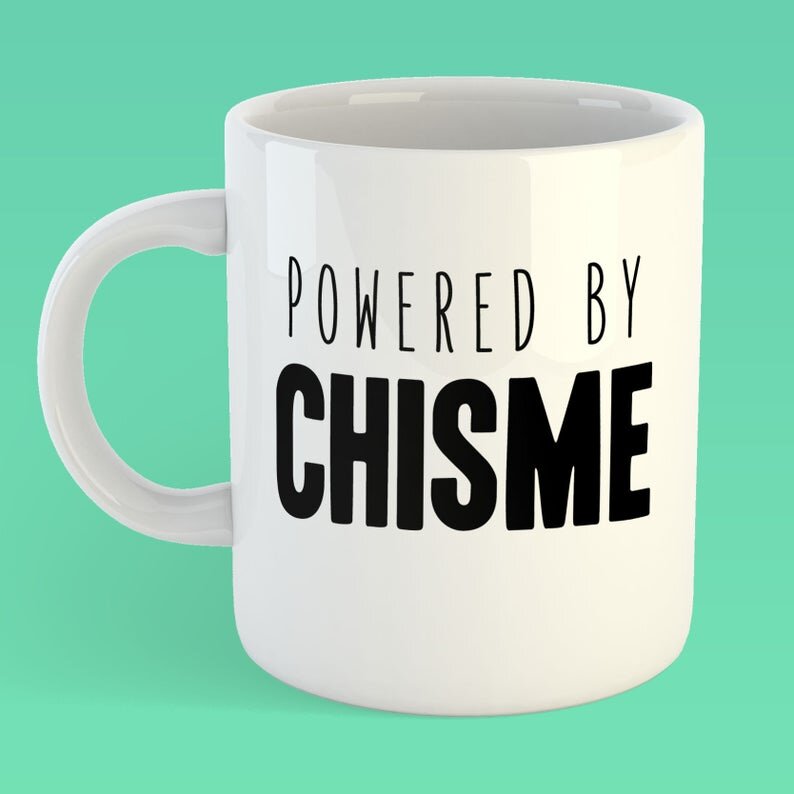Forget-Me-Not: Mati in memoriam
The Hispanic Theological Initiative commemorates theological social ethicist Dr. Matilde Kathleen Moros
Photo collage depicting Dr. Matilde “Mati” Moros and photographs she took of the flowers gifted to her throughout her moments of joy and of struggle. Whether sent by her loved ones or nature itself, each flower served as a poignant reminder of the love that surrounded Dr. Moros. Graphic: Isabel Gonzalez
EDITORIAL NOTE
Dr. Matilde “Mati” Kathleen Moros was a beloved member of the Hispanic Theological Initiative (HTI) community. From serving as a Student Aide at the HTI office to becoming an HTI graduate, she touched many lives through her HTI networks and beyond. We will miss her generous smile as much as her wisdom. To celebrate the life of Dr. Moros, HTI features a biography and information on her body of work, including podcasts she contributed to HTI Open Plaza, and a list of her publications and academic presentations. To share a memory or your sympathy with her family, you can click here.
Isabel Gonzalez
MDiv Candidate, Princeton Theological Seminary
Communications Coordinator, HTI
August 2023
Biography
Adapted from source at Virginia Commonwealth University
Dr. Matilde Moros was born in Venezuela and raised between the United States and Latin America. Her upbringing as a binational member of a multicultural family has led her in her transnational, decolonial, feminist work in religious social ethics. As a young child, Dr. Moros was exposed to human rights work in Latin America and later with Latin American migrants in the first Sanctuary Movement. As a young political science student at the College of Wooster, Dr. Moros studied the Mothers of Plaza de Mayo of Argentina, trying to understand the keen resistance of the mothers of the disappeared. So much of the academic and social justice work Dr. Moros did was about counter-hegemonic methods of resistance that the most vulnerable populations practice as ‘otros saberes,’ other ways of knowing. One of these ways is developed through the method of ‘testimonio, a Latin American counter-narrative method of truth telling.
Dr. Moros' work is centrally located in the most vulnerable populations' responses to gender and sexual violence, and how we begin to do the work of breaking silences and revealing methods of resistance was a central question for Dr. Moros. She focused her doctorate and Masters of Philosophy work at Drew University on resisting the ‘Economy of Rape,’ a term she more fully developed in her dissertation work, titled “The Ethic of Resistance to the Economy of Rape: A Latin American Feminist Christian Model,” about Argelia Laya, an Afro-Venezuelan feminist leader.
In her Master of Divinity studies at Princeton Theological Seminary, Dr. Moros developed a project on how political division is also evident in how religious communities interpret their community work with the most marginalized populations. At Princeton, she also focused on the texts of Gloria Anzaldúa and Marcella Althaus-Reid as guides to understanding gender and sexual violence in politically divided Latin America and Latinx communities. During her Master of Theological Studies at Harvard University Divinity School, Dr. Moros worked in an interdisciplinary collection of Latin American magical realism narratives, and the role these played in the way Latin American sexualities were portrayed in text. This is also where Dr. Moros first engaged with the life and work of Sor Juana Inés de la Cruz, widely acclaimed as the first feminist of the Americas.
While at Virginia Commonwealth University (VCU), Dr. Moros published various book chapters and book reviews and, among other teaching-related work, produced podcasts and a video series and worked collaboratively with various organizations, including the American Academy of Religion, the Presbyterian Church, USA, the Hispanic Theological Initiative, the Hispanic Summer Program, the Borderlands Institute, the Wabash Center for Teaching and Learning in Theology and Religion, Theological institutions in Latin America and Europe, and locally with the Virginia Interfaith Center for Public Policy. Dr. Moros taught her beloved VCU students in Introduction to Gender, Sexuality and Women's Studies, Latinx Feminisms, Mujerista Ethics, Decolonial Feminisms, as regular, honors and topics courses. She also taught departmental requirements for both graduates and undergraduates.
She is survived by her partner John Taylor, a parent to three young adults (Alexa, Omar and Ali), and was a dog mom to Piper. Richmond had become a favorite home town to Dr. Moros, who had been a world traveler and moved too many times in her life. Mati, as her friends called her, found a happy place in her backyard gazebo, from which she often taught and greeted her students.
Open Plaza Blogs and Podcasts
Publications
English
“Venezuela” [with Gremaud Angée]. Christianity in Latin America and the Caribbean, eds. Kenneth R. Ross, Ana María Bidegain, and Todd M. Johnson. Edinburgh University Press, 2022.
“My story of mission as a woman of Latina-Hispanic heritage.” Mission Crossroads, Spring 2017.
“Theologizing Social and Economic Justice.” Wiley-Blackwell Companion to Latino/a Theology, ed. Orlando Espin. Wiley Blackwell, 2015.
“Thinking Ethically.” Thinking Theologically, ed. Eric Barreto. Fortress Press, 2015.
“A Postcolonial Review of a Postcolonial Play: The Convert.” Journal of Postcolonial Networks, Vol. 2, May 2012.
Español
“Otto Maduro: Maestro de cómo ser amigo.” Presencia Ecuménica, Nro. 81, mayo-agosto 2014, Caracas, Venezuela. Reimpreso en Perspectivas, Issue 13, Spring 2016.
"El amor como resistencia, en búsqueda de la dignidad latinoamericana." Revista de Teología: Publicación de la Escuela Ecuménica de Ciencias de la Religión (SIWO), Vol. , No 2 (2013), San José, Costa Rica.
“El Encuentro con el Desencanto: ‘Ocupemos,’ ¿La Protesta de un Nuevo Sujeto?” Presencia Ecuménica, Nro. 73, septiembre-diciembre 2011, Caracas, Venezuela.
Presentations
Launch of the Ada Maria Isasi-Diaz Justice Institute
“En la Lucha/The Struggle: What is The Struggle in 2022 for Latinas/for Us All?” Panel, Charter Oak Cultural Center, October 2022
Expanding the Narrative: Women and the Reformation Series
Theoacademy, November 2022
3. Reforming Movements
Our exploration of the role that women played in the Protestant Reformation of the 16th century invited us to consider how their stories challenged to think about reformers and reforming movements in new ways. This video will invite you to engage several questions: Who or what is a reformer? What does it mean to be a reformer? What are the most important dates of the reformation?
4. Finding Our Voice
Participants in this video grapple with a key question—What forms and informs your voice? “Finding Our Voice” invites you to consider a variety of ways in which people find their way into Reformed traditions and the relationship between one’s own context and experiences and biblical interpretation.
5: Transforming Identity
“Transforming Identity” focuses on faith as an embodied practice and explores ways gender, race, ethnicity, sexual orientation, and social class relate to belief and your understanding of Christian vocation. Significant themes and concepts introduced in this video include intersectionality and thinking beyond the male/female gender binary.
Princeton Theological Seminary Sermon
Closing Worship Service at the Class of 2019 Reunion, Princeton Theological Seminary, 17 May 2019







